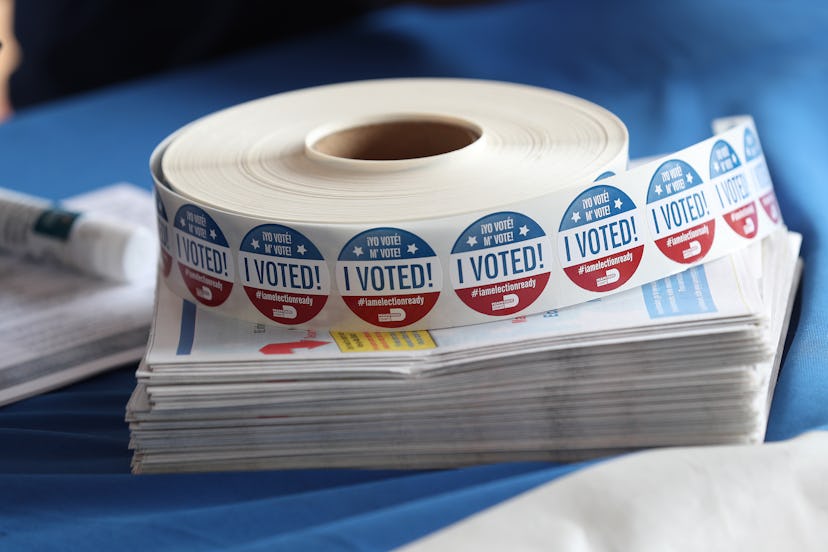Forget Trump and Biden, Are You Ready to Vote Down-Ballot?

At this point in the game, undecided voters get a lot of flack. But there’s a chance that, even if you’ve made up your mind between Donald Trump and Joe Biden, you might be an undecided voter without realizing it.
That’s because there’ll be much more on the ballot than just the presidential race. All 435 House seats are up for election, along with 35 senate seats in 34 states. Eleven states will elect new governors, and portions of 86 of the country’s 99 state legislative chambers are on the ballot. Major mayoral elections will occur in places like Baltimore, Miami-Dade County, Portland, and Phoenix. Plus, you may be asked to weight in on local referendums, state constitutional amendments, county commissioners, neighborhood planning board members, judicial seats, and on and on. If you’re worried that neither of the candidates fully represent your views in one race or another, well, the good news is that you have lots of ways to express your voice on the ballot. It just might take a little bit of research first.
“I happened to have a number of friends who were planning to not vote,” says Selena Strandberg, founder of Founder & CEO KnowYourVote. “Some thought that they didn’t feel like they had adequate information on the candidates who were on the ballot and that it was just simply too time-consuming to research everyone on the ballot.”
So Strandberg, who has a background in both tech and government, launched the voter information website KnowYourVote, which helps those undecided on down ballot races research candidates based on issues.
The country, after all, is not just built around three branches of government at the federal level—it is a federalist system that delegates many powers and responsibilities to state and local governments as well. Decisions made on the lower level could end up having more of a direct effect on your daily life.
“Figuring out the local or state races, I would say, are equally important as figuring out the presidential race,” says Strandberg. “They impact different things and they impact different policies. So, when you look at the things that have happened in this country over the summer, specifically related to race and police brutality, so much of the change that can be made there is on the local level. It’s really important to figure out and know who you’re voting for on the down ballot races.”
State legislative races can be especially important, because as Strandberg points out, it’s the state legislatures that have the power to draw up federal congressional districts which, in turn, can impact the makeup of the federal congress.
Luckily, with information more readily available than ever, it doesn’t take all that long to research your full ballot. Here, some helpful resources.
- Find Your Sample Ballot: Many states and localities allow voters to view a preview version of their full ballot online. Visit your local elections department, which you can find here, to find yours.
- KnowYourVote: Strandberg’s own website pulls in data from candidates’ voting records, official positions on their campaign websites, donor data, and even remarks on their Twitter accounts to highlight the differences between candidates based on issues important to you. Pick your priorities, enter your address, and get to researching.
- Ballotpedia: A non-partisan, non-profit database published by the Lucy Burns Institute, Ballotpedia is a treasure trove of information related to every level of democracy in America. Their Sample Ballot tool will not only highlight races between politicians, but is also a helpful resource for researching things like judicial retention elections, referendums, and ballot questions as well.
- Your Local Media: Yes, your local media may be the best resource for researching state and local issues. Who would have thought? Several major local daily newspapers are highlighting their voter information hubs prominently on their websites this week. It’s just a Google search away. Though, be sure to seek out your local alt-weeklies, reputable digital outlets, and local news stations as well.
- Check With Local Activist Organizations: Many state and local issues-based organizations will often offer guidance on particular down ballot races.
- Share and Talk With Your Friends: One of the downfalls of social media is that it has a tendency to de-localize conversation. You can like the tweets of your favorite activist or online political gadfly all you want, but if they live in another state it won’t help you when it comes to deciding on how to vote for city council. So talk to your friends and family, and be sure to share and re-share any helpful resources and insight on your own social media.